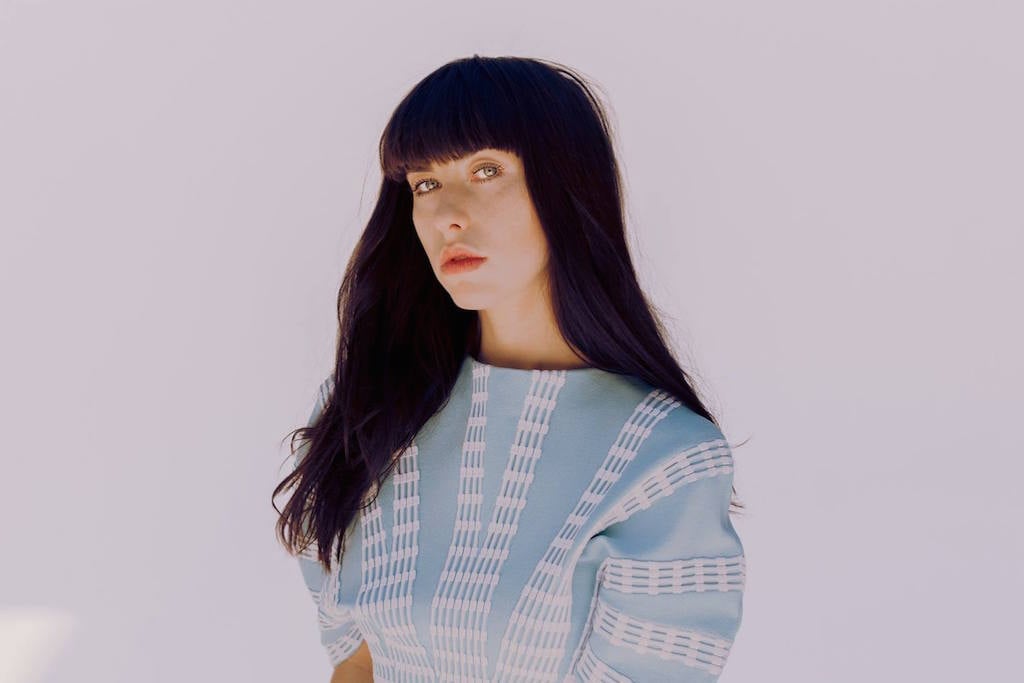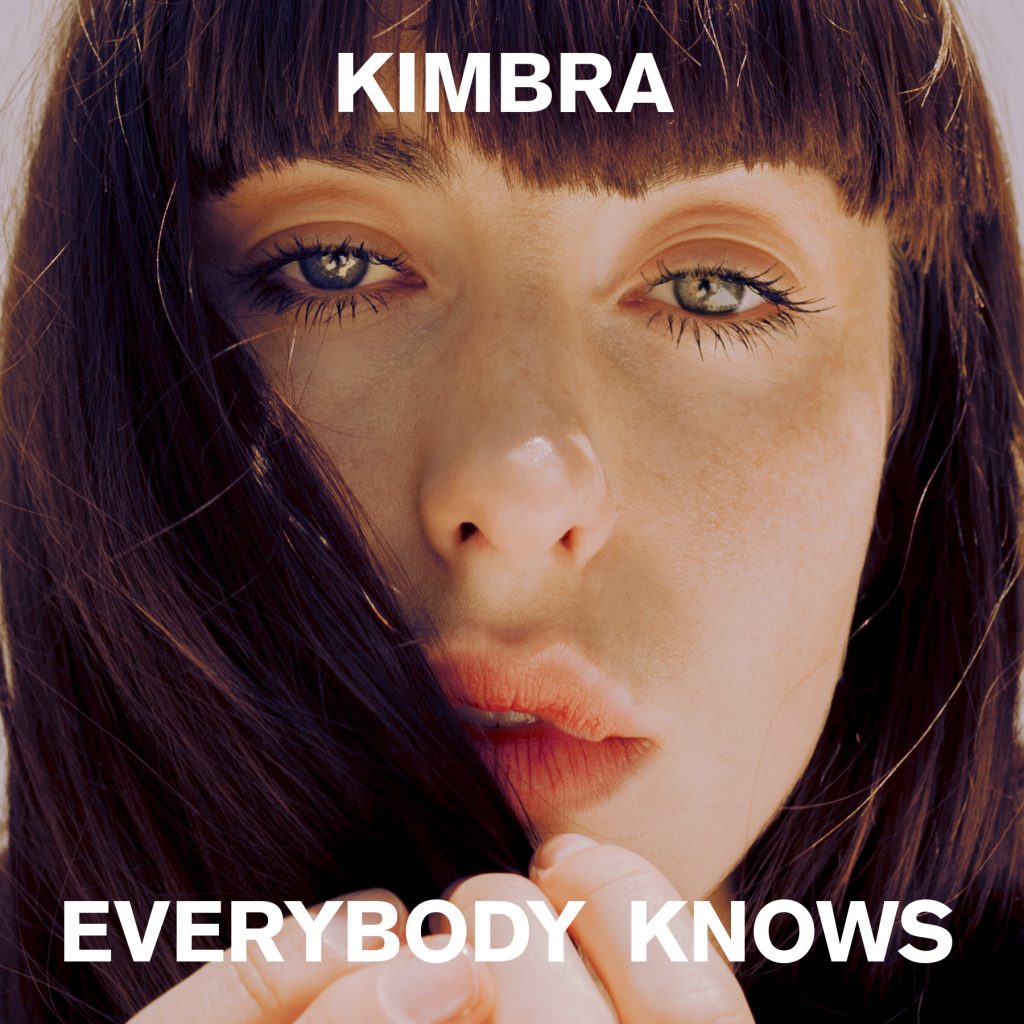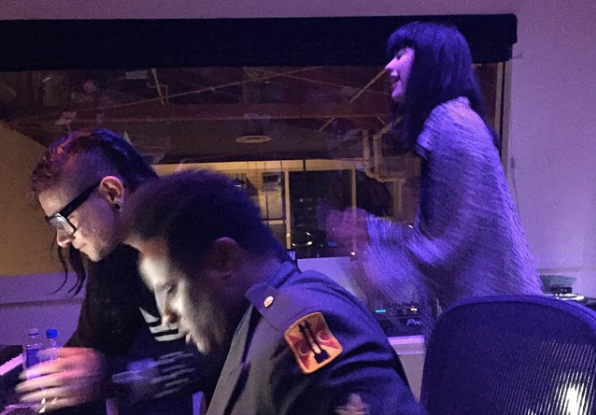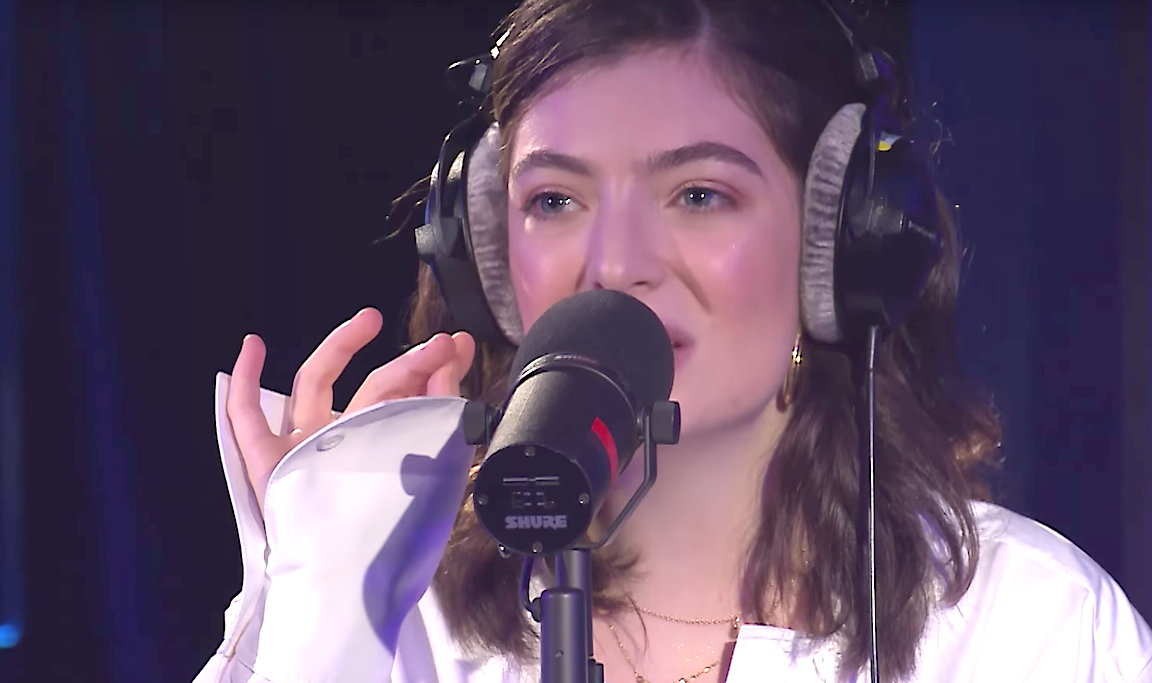Kimbra Is Back And Ready To Cut The Bullshit
A new era of Kimbra is upon us.

This time last year, I was sitting in a cafe in New York’s Alphabet City when in walked Kimbra. She was there for what looked suspiciously like a business meeting while I, thrilled by the celebrity sighting, did some mental math. Did that mean new music was on the way? Was she collaborating with American acts? And how does she get her hair like that?
12 months down the track, new music has indeed materialised. Last week Kimbra Lee Johnson shared ‘Everybody Knows’, the lead single from her forthcoming third album Primal Heart. By the time it’s released, it will have been close to four years since her last LP, The Golden Echo, which was adored by critics but didn’t reach the commercial heights of her debut Vows.
Kimbra was back in New York — her new city of residence — when I got on the phone with her to talk about those last few years. The 27-year-old concedes that she was “doing a lot of things at once” on The Golden Echo, though she remains proud of the album and the moment in her life it captures.
But Primal Heart will mark a new chapter — one where she’s old enough to speak candidly and with, she says, “a little less bullshit”.
So, let’s talk about Primal Heart. What does it sound like compared to your previous albums?
I feel like it sounds different, which is exciting. Obviously most artists want to do something different when they make a new album, but I’m glad that I’ve got some tricks up my sleeve and I don’t just make the same album over and over again. That feels good.
It feels like there is a maturity to this record. I think I’ve got a little more confidence to share my vulnerabilities with people. That’s always a frightening thing to do, you know? Because it’s a lot easier to dress up and invent characters. The hardest thing is just to tell it how it is and present yourself honestly to people.
“The hardest thing is just to tell it how it is”
But I think I was ready to do that on this album, to bring my voice to the forefront, and make production decisions that were very intentional. It feels a little less dense than my other albums. I’m very proud of The Golden Echo, but I think I was doing a lot of things at once, and this is probably the most cohesive album that I’ve made. So there’s a very clear direction for me.
And it’s very thoughtful. Some of these songs have been mantras to me as I’ve lived through a bit of hard times in the past couple of years. They’re songs that have got me through hard things, so it feels special to share them with people.

So there are personal stories in these songs?
Yeah, of course. All my songs have a personal meaning. But I think [previously] I’ve been able to dress things up in a lot of metaphor and create a surreal world around the songs, or a sense of escapism. And I think that this album is more direct.
Not that I’m talking to situations in a completely literal way; I think there’s always a bit of figurative imagination to things. But it just feels like I’m a little less scared to talk about pain, my experiences as a woman, and put them a little more at the forefront of the work, rather than needing to decorate them with fantasy.
That just feels like a courage that comes from growing up, really. I think as people, we just get better at telling it how it is, you know? I’m 27 now, and I think that there’s a little less bullshit and more wanting to just speak to things with a little more reality. Maybe that’s a part of moving to New York as well. This city makes you get to the point a little quicker!
I got the sense that ‘Everybody Knows’ might be a break-up song.
Well, sort of, yeah. ‘Everybody Knows’, to me, is a song that’s about awakening to some kind of truth. And I’ve definitely been through some pretty important break-ups in the last couple of years.
I think in many ways, ‘Everybody Knows’ has a sense of courage about it. It’s very easy to suppress situations that are hard in your life, right? To deny them, or skim over them, and it’s hard sometimes to look at something in the face and see it for what it is. But of course, when you finally do confront something and have the courage to look at in the eye, that’s when you experience true freedom and true revelation and actually move on from the situation.
So to me, ‘Everybody Knows’ is that point of seeing something for what it is. Whether that’s romantically, maybe for some people it’ll be that; maybe for others it’ll be a friendship. I like to keep my songs open to interpretation. But yeah, I can definitely say that it could be about a relationship changing, for sure, in my life.
Is this album pop music? And is it fair to categorise you as a pop artist?
It’s funny, there’s a lot of connotations with pop that makes people think of the bubblegum kind of imagery.
But to me, I just think of pop as being like this incredibly accessible language, you know? Pop music has the potential to appeal to the layman who’s saved up enough money just to get a little jukebox and doesn’t necessarily have any deeper perception of musical theory, but can understand a great, catchy hook. And it can also appeal to deep music theorists who love to pick songs apart.
Brian Wilson from the Beach Boys was a pop artist, and Prince was a pop artist, and we know these acts to be some of the highest calibre of musicians to date. So if people call it “pop music,” I’m very proud to be aligned with that genre, because pop has the most potential to reach the most people. But also, it has the potential to be highly complex if you play it right.
I believe that pop music shouldn’t dumb people down — I think pop should make people smarter. I feel sad when pop becomes just a format of the same tiring formulas, and you know everything that’s coming. If that’s what pop music becomes, then I don’t want to be called a pop artist. Invent some other genre to put my music in.
But there’s so many people, like Janelle Monáe, that I totally look up to and who are pushing boundaries. I think that’s the most important thing — using pop to push people to think deeper.
Back in 2015 you Instagrammed a photo of yourself in the studio with Skrillex, Miguel and Thundercat. Whatever became of that session? Is it on this album?
I remember that night. That was crazy. We did make a pretty insane beat — it’s an instrumental and it’s got this crazy bassline, and I’m singing in it, and Miguel put a bunch of vocal things down.
But we were a little drunk and it was very late, and it turns out that the mic was distorting the entire time. So all the takes that we did are all distorted when you listen back. There were only a few takes that Sonny [Skrillex] kept, but we still have that track lying around. But it hasn’t been completed, because basically we lost so much!
But I can say that I’ve been including at least one person from that session on this new album. But there’s no music that came of that night. You don’t get to hear some of that.

As you said, you’re based in New York now. Do you think that musicians from Australia and New Zealand need to make that move to the US if they want to take their career to the next level?
First there’s an obvious answer to that, which is just that it’s a bigger market. So wherever there’s more people doing music, there’s going to be more opportunity. It’s the obvious answer, but that’s not to say that people can’t have a fantastic career in Australia and New Zealand. It’s still a really big market to me.
I think it’s just really important that artists challenge themselves at some point. And you can reach a level of comfort in your hometown or in the country you grew up in, and I think for every artist it’s important to be a space where you are the small fish in the big pond, rather than the big fish in the small pond. That brings new ideas out of you and pushes you to define what you stand for. All of those things are really important for having a long career.
I’m definitely glad that I have continued to make an album in a new city, every time. And I think I might keep with it, you know? I’m excited to be like, where will the next city be? Keep moving.
I wanted to talk a little bit about when you first started out in music. I know that you moved to Melbourne from New Zealand before you ever linked up with Gotye. What were your early experiences of the music industry like? And do you think that things happened pretty easily for you, or was there like a lot of hustle, and sweat, and frustrating moments behind the scenes?
Yeah, of course. To give you a picture, I finished high school and was offered a management deal that was a bit like a record deal, because they would give me the finance to actually record an album. I was offered that fresh out of high school and I moved straight to Australia as a 17-year-old, and I didn’t know anyone.
I moved into a one bedroom apartment and was very lucky to have a portable set-up — a computer and software to work on, and I just started making an album. And of course that sounds like a dream, and it was, but it’s also a massive change, right? To go from high school to suddenly just being in a country where you don’t know anyone and making an album.

I started writing a lot and learning how to produce music. And I had amazing support network in terms people who believed in me. But I think there was a lot of impatience — I wanted to create something quickly, but I had to of course go through the motions of finding a producer, which was François Tétaz. He really challenged me; he really made me write, and write, and write for a good couple of years before I really started to actually cement anything.
So it was quite intense to have just one thing that I was working on for that period of time while all my other friends were at university. I do remember wanting to just release music because I was over there, I was ready, I was gigging. I had people around me really encouraging me to wait and be patient, find my style, find my voice. It was very frustrating for a 17-year-old or an 18-year-old who’s just ready to go for it. But looking back now, I’m highly grateful that I did take that time. Because once things start going, man, they don’t stop.
But there were a lot of hard moments. I had to make friends from scratch; I didn’t know many people. And, you know, all the same things as when you or anyone was 17. You’re figuring out who you are. But for me, I was in a new country and had the pressure of trying to come up with an album. I was like super nervous that maybe I wouldn’t be able to achieve that goal.
But I wouldn’t take any of it back. It was a pretty incredible opportunity that a lot of kids dream of.
You’ve got two albums out from two different stages of your life. How does it feel to look back on your body of work? Do you always feel proud, or are there things that you listen to know and you wish you could go back and do them differently?
No, I think to be fair, both of those albums really represent exactly where I was at. I’ve always followed my gut, I’m very proud to say that. I’ve been signed to a major label, but I’ve been very clear about the kind of record I want to make with all of those albums. I was very lucky to have support by the label to do something pretty experimental with The Golden Echo.
“I’ve always followed my gut, I’m very proud to say that”
I look back and of course I sort of laugh at myself and think, “Wow, that’s so funny that I was trying to do all of these things at once.” There is something beautifully playful about some of the early music. But I certainly have an affection for the courage in some of it, because it’s cool that I like stayed true to that vision.
Some pop artists have a lot of people pressuring them to do something that they don’t want to. And I think it’s nice to look back on the body of work and be able to say that I’ve stuck to the vision the whole time and followed what was interesting to me. I think that’s what the fans appreciate, you know? They want to see you believe in the work that you create.
So it’s been six years now since ‘Somebody That I Used to Know’ came out. How do you feel about that track now? Like, are you just totally sick of it by now?
No! I mean, it’s definitely still pretty crazy when you hear it come on these days, because there’s a flurry of memories that come back, and that was just such an intense time of my life, travelling around the world performing that and watching it become so viral.
I have a lot of affection for that time and I’m just like so happy I got to share it with someone so awesome as Wally [De Backer, Gotye], because it would be different if I was just lumped with an artist that I didn’t really know. Wally’s actually, genuinely, one of my closest friends, and getting to do that whole journey with someone that I really admire and love is actually really cool.
I’m very grateful that I had a chance to create something that lived in the hearts of people at that level. It’s like every artist dreams of being able to speak to people on a very personal level. That song went straight to the heart for a lot of people and I just it’s a real blessing that I got to be a part of so many people’s lives.
—
The new Kimbra single ‘Everybody Knows’ is out now via Warner Music Australia.
—
Katie Cunningham is the Editor of Music Junkee. She is on Twitter.
